Our Data Lifeboat workshops are complete
Thanks to support from the Mellon Foundation, we have now completed our two international Data Lifeboat workshops. They were great! We have various blog posts planned to share what happened, and I’ll just start with a very quick summary.
As you may know, we had laid out doing two workshops:
- Washington DC, at The Library of Congress, in October, and
- London, at the Garden Museum and Autograph Gallery, in November.
We were pleased to welcome a total of 32 people across the events, from libraries, archives, academic institutions, the freelance world, other like-minded nonprofits, Flickr.com, and Flickr.org.
Now we are doing the work of sifting through the bazillion post-its and absorbing the great conversations had as we worked through Tori’s fantastic program for the event. We were all very well-fed and organized too, thanks to Ewa’s superb project management. Thank you both.
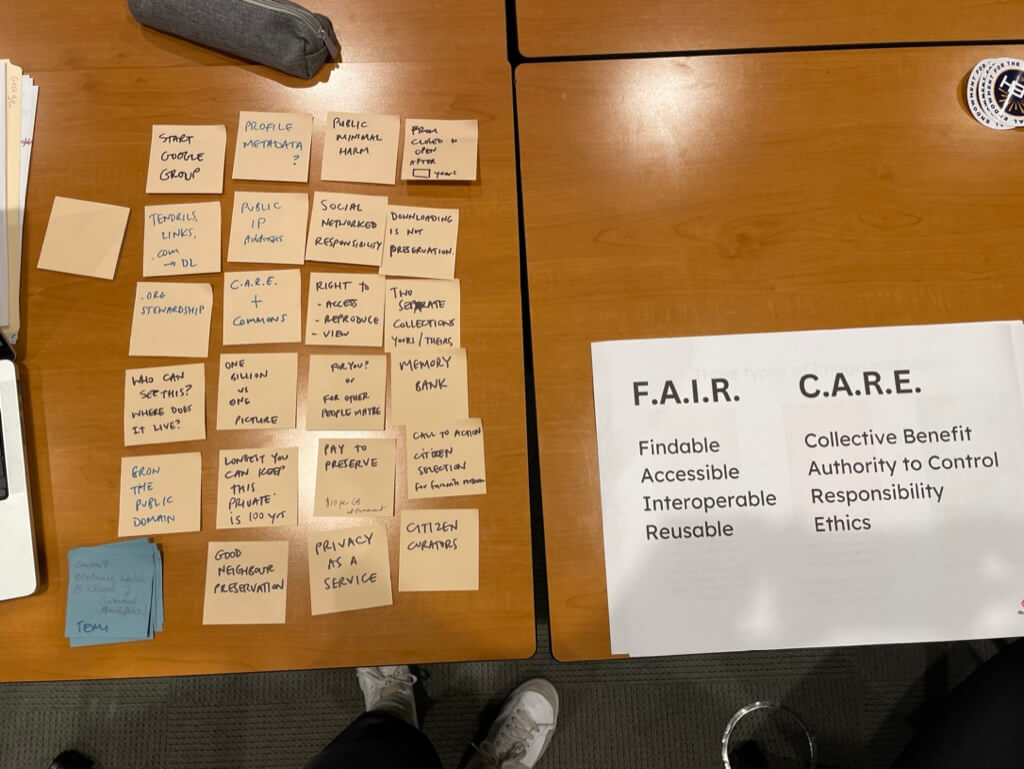
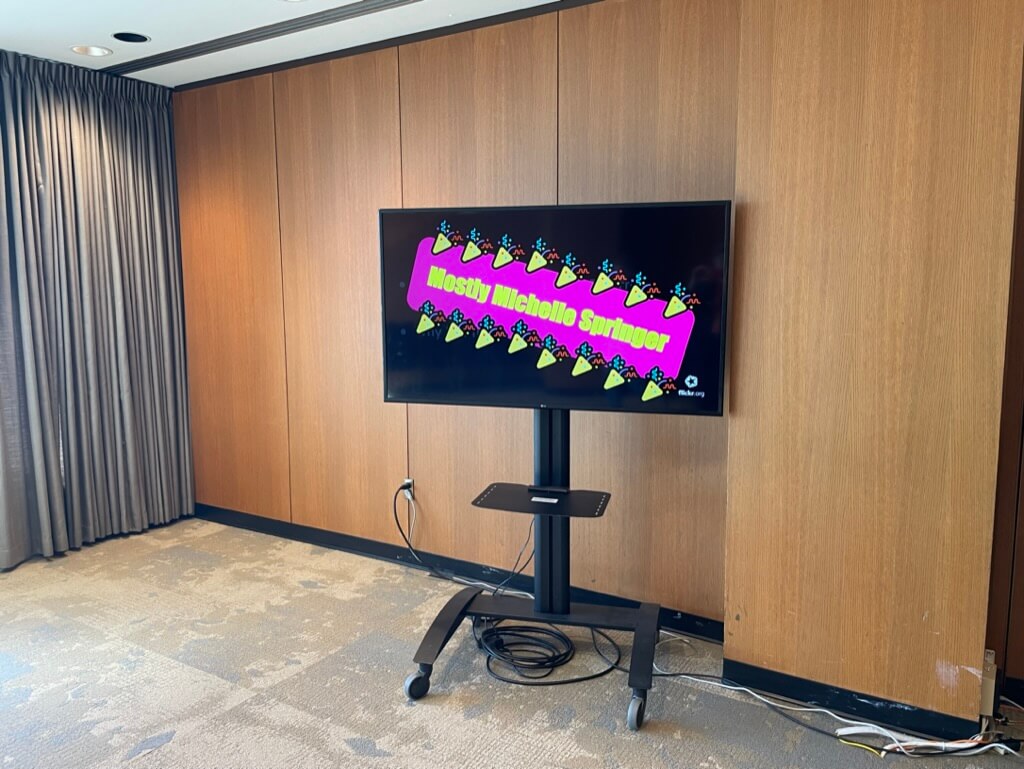
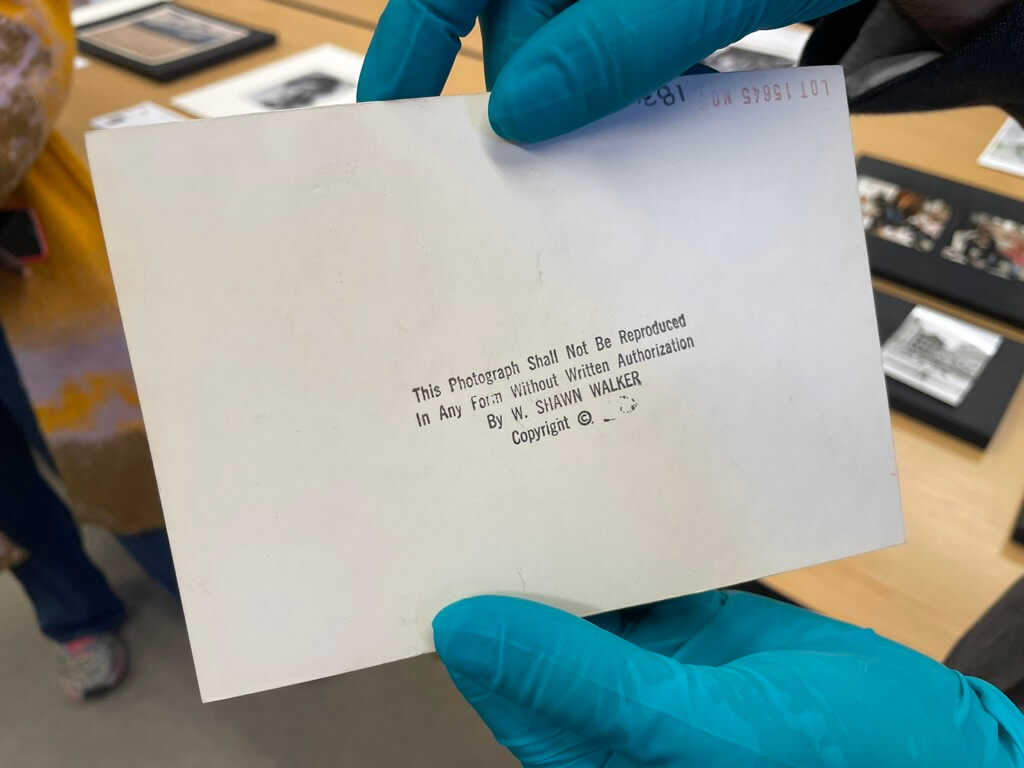
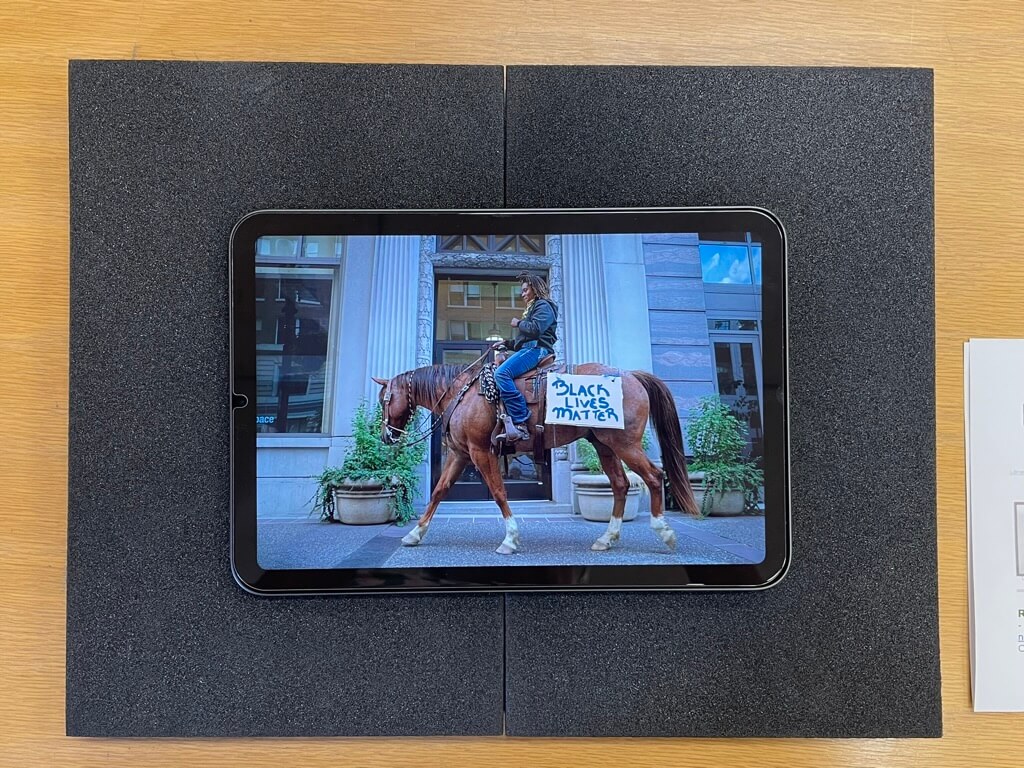
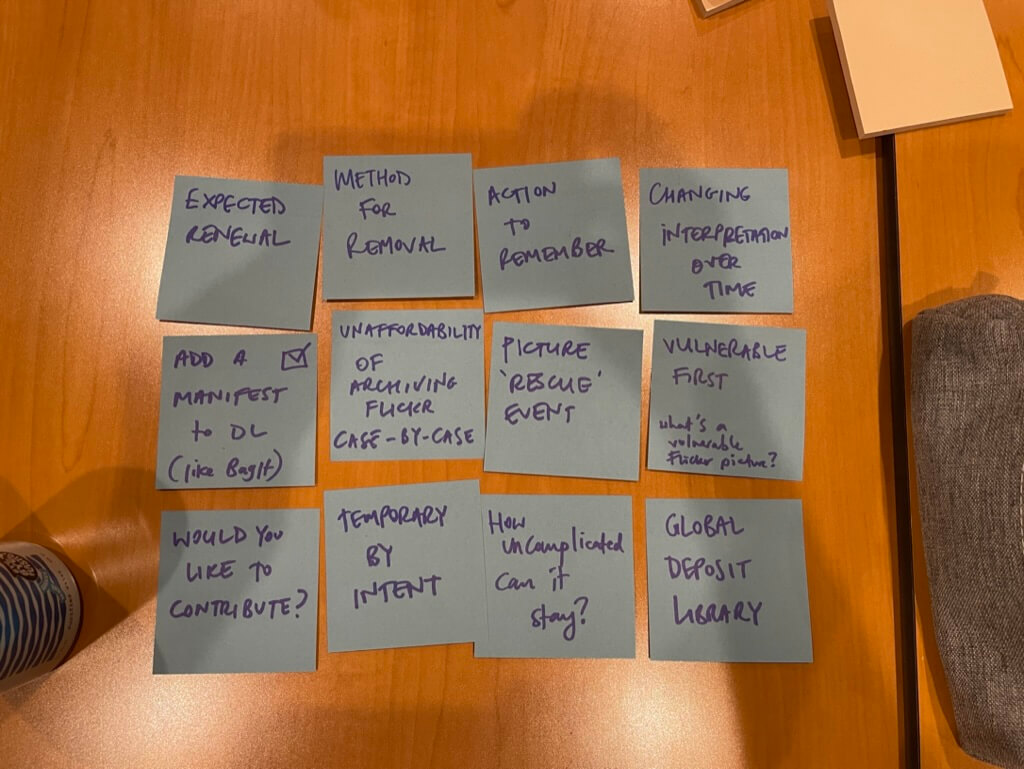

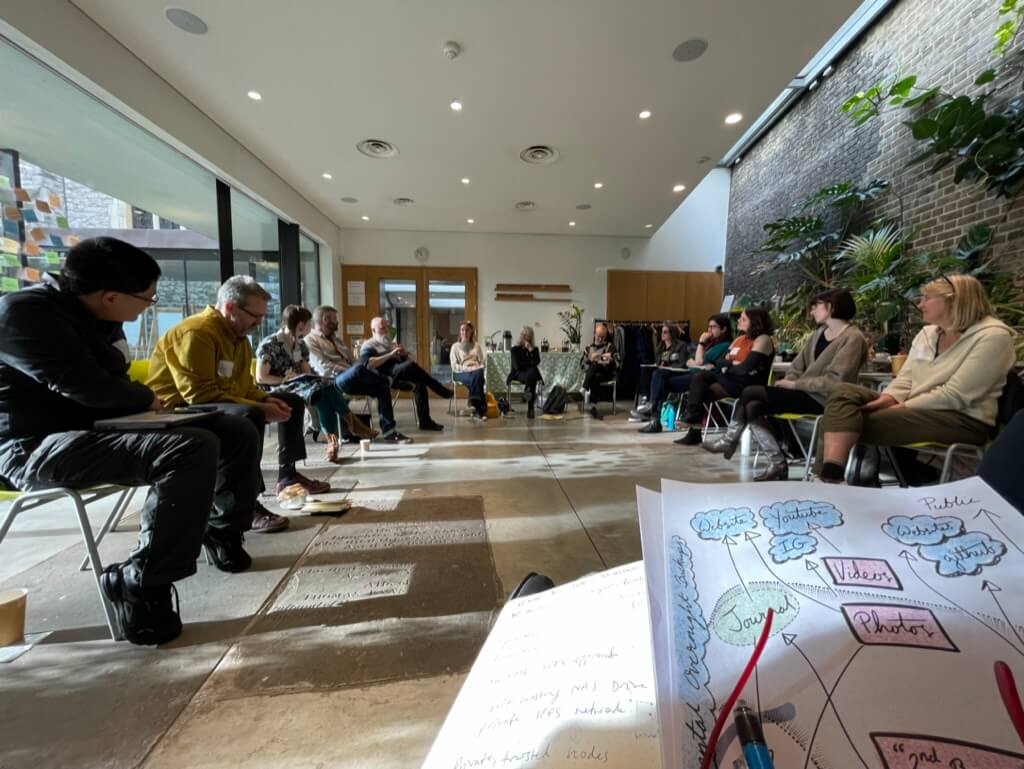
Workshop aims
The aims of each workshop were the same:
- Articulate the value of archiving social media, and Data Lifeboat
- Detail where Data Lifeboat fits in current ecology of tools and practices
- Detail where Data Lifeboat fits with curatorial approaches and content delivery
- Plot (and recognise) the type and amount of work it would take to establish Data Lifeboat or similar in organisations
Workshop outline
We met these aims by lining up the workshops into different sessions:
- Foundations of Long-Term Digital Preservation – Backward/forward horizons; understanding digital infrastructures; work happening in long-term digital preservation
- Data Lifeboat: What we’re thinking so far – Reporting on our NEH work to prototype software and policy, including a live demo; positioning a Data Lifeboat in emergency/not-emergency scenarios; curation needs or desires to use Data Lifeboats as selection/acquisition tool
- Consent and Care in Social Media Archiving – Ethics of care in digital archives; social context and care vs extractive data practices; mapping ethical rights, risks, responsibilities including copyright and data protection, and consent, and
- Characteristics of a Robust & Responsible Safe Harbor Network (our planned extension of the Data Lifeboat concept – think LOCKSS-ish) – The long history of safe harbor networks; logistics of such a network; Trust.
I’m not going to report on these now, but whet your appetite for our further reporting back.
Background readings
Tori also prepared some grounding readings for the event, which we thought others may like to review:
- The Archival Sliver: A Perspective on the Construction of Social Memory in Archives and the Transition from Apartheid to Democracy by Verne Harris
- Energy, Digital Preservation, and the Climate: Proactively Planning for an Uncertain Future by Sibyl Schaefer
- The Image As Witness: Collecting Visual Materials from the National Tragedy by Jeremy Adamson
- Digital Preservation: A Critical Vocabulary, Chapter 5: Risk by Rebecca Frank
- “I Can’t Wait for You to Die” A Community Archives Critique by Harrison Apple
Needless to say, we all enjoyed it very much, and heard the same from our attendees. Several follow-on chats have been arranged, and the community continues to wiggle towards each other.
